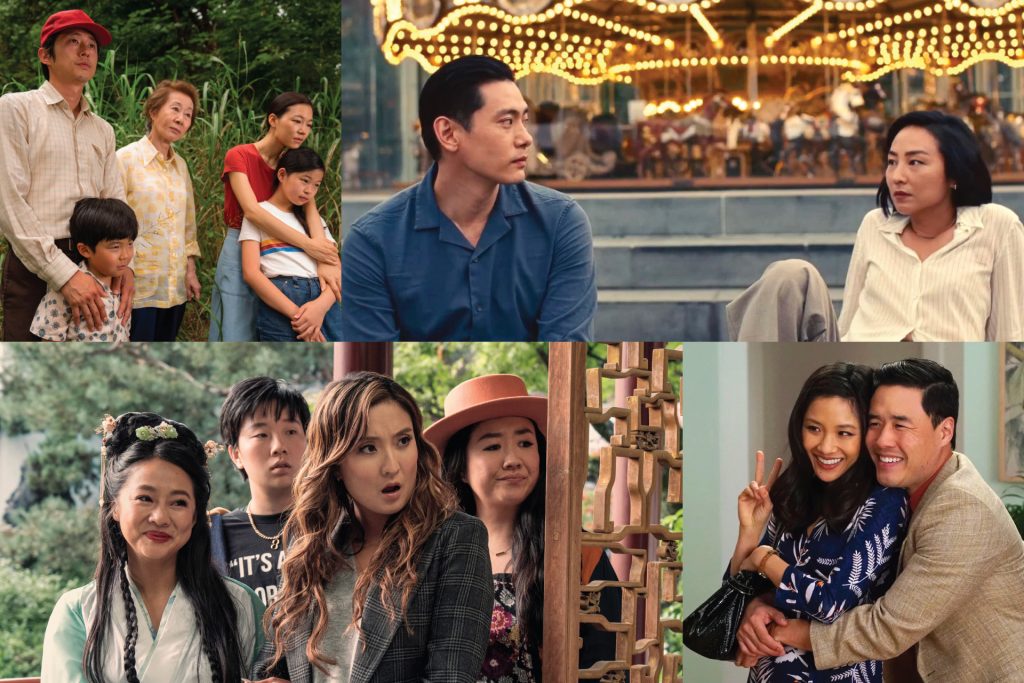Asian Storytellers in the American Zeitgeist

Image credits: Top-left: Minari (2020) Josh Johnson / A24; Top-right: Past Lives (2023) Everett Collection / A24; Bottom-left: Joy Ride (2023) Ed Araquel / Lionsgate; Bottom-right: Fresh Off the Boat (2015) Eric McCandless / ABC
It’s July, officially the summer blockbuster season – what better time to talk about Asian Americans in entertainment? As consumers revel in increasingly diverse movies and shows across streaming and on-demand services, we can’t ignore the rise of Asian entertainment and how it’s defining American pop culture today. From movies like Minari and Joy Ride, to shows like Fresh Off the Boat and Beef, Asian American storytellers are shaping the American zeitgeist with fresh, authentic stories of what it means to be Asian in America today.
Representation alone is not always credible
But why has it taken so long? For those of us who remember, the first Asian American sitcom on network TV debuted all the way back in 1994, when ABC introduced All-American Girl starring Margaret Cho. (The OG Asian comedienne, the Ali Wong of her day!) The show was unceremoniously cancelled after just one season, following criticisms from both the industry and the public. The “all-American girl” created by the showrunners (none of whom were Asian), was a terrible stereotype of a young Korean woman who constantly clashed with her immigrant parents for her “Americanness.” The show seemed to suggest that one could not be both Asian and American at the same time and furthered the idea of the ‘perpetual foreigner’ that plagued the Asian diaspora – that Asians can never truly belong in America.
Ownership and agency lead to authenticity
What has changed since then is the way Asian creators have taken ownership and agency of their own narrative. Authentic stories based on the lived experiences of Asian Americans is what has made shows like Beef, and movies like Past Lives gain widespread acclaim. It has also made comedians like Ali Wong, Hasan Minaj, and Jimmy O Yang just to name a few, gain immense popularity in the industry. Their expressions of what it’s really like being Asian in America today is so honest and true, it is utterly relatable and resonant to audiences who have often experienced those exact moments in their own lives. Both the audiences and the industry are recognizing and rewarding Asian American creators telling genuine stories in their own ways.
Authenticity done right means business done right
Authenticity in representation is not only meaningful culturally but has significant implications for businesses as well. A recent McKinsey report highlighted that Asians in the U.S. spend significantly less on film and television compared to their White and Black counterparts. The study also revealed that Asians would spend more if their own experiences were more authentically represented. Unsurprisingly, Asian audiences are looking for content they can relate to at a deeper level. Given Asian Americans’ higher household and disposable incomes, entertainment and media companies would be remiss to undervalue the rise of Asian storytellers or disregard the clear desire of this affluent consumer segment.
And of course, this finding applies to businesses beyond the entertainment industry. It’s not new news that brands that lead with cultural understanding of their consumers foster deeper connections, leading to increased engagement, preference, and loyalty. Understanding cultural nuances is a key differentiator for brands to win with any multicultural consumer group, something that cannot be overlooked as American consumers become more and more diverse. Businesses interested in the long-term success of their brands should pay heed to Asian Americans’ growing desire for authentic representation and find meaningful ways to connect with this increasingly influential population.
Contact us if you’d like to properly engage with Asian American consumers. We’ve been doing it for over 25 years.



